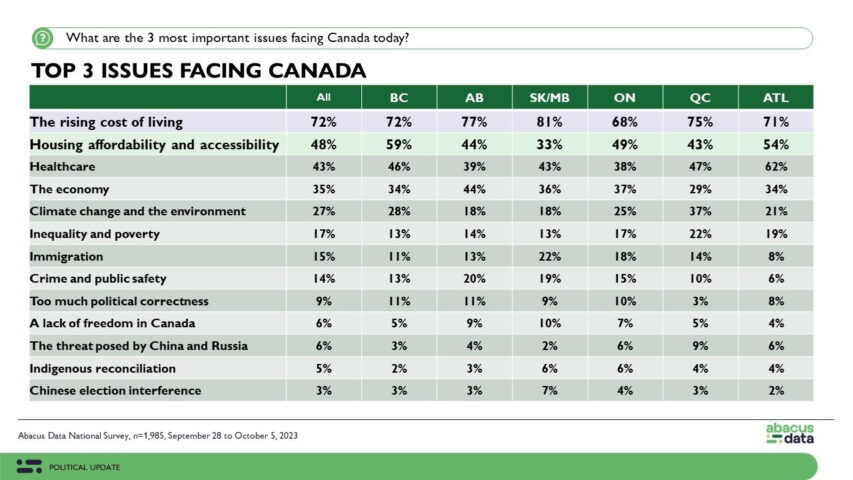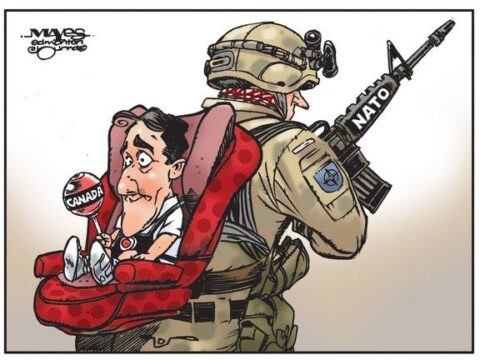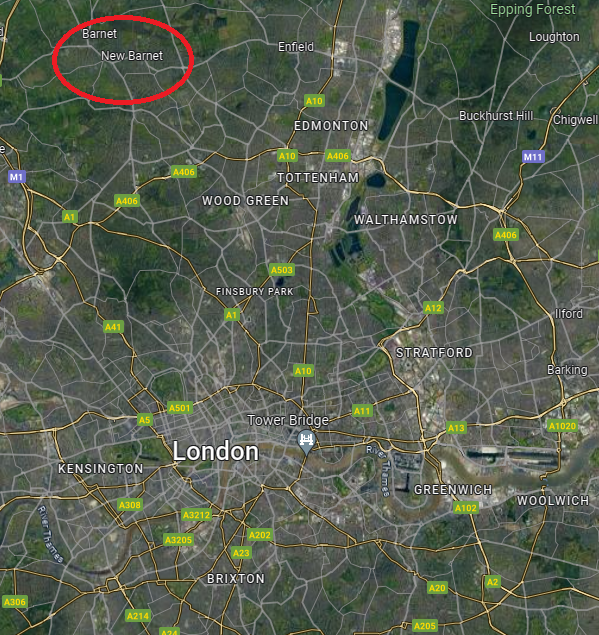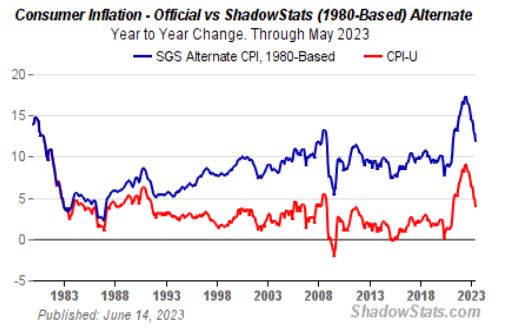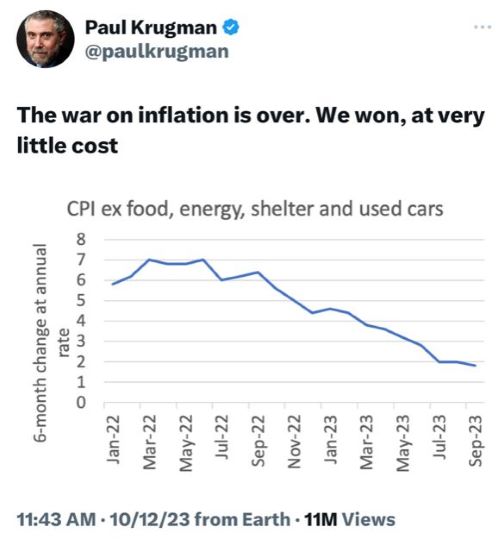The obvious frame for this book is what has been fittingly termed the German Catastrophe: the fate of Germany in the late 19th and early 20th century, as viewed from the perspective of German nationalists who were not Nazis — the perspective of people like Ernst Jünger.
Germany had entered modernity without democracy. The Kaiserreich (German Empire) had united the many small German states, aggressively worked to catch up with industrialization, built a state to rival France and Great Britain, and remained authoritarian throughout. Commoners had negligible political influence. They did get social insurance, but not through their own political power but granted top-down, as an appeasement to undermine socialist movements. Civil marriage, secularized state education, prospering state universities and a long series of modernizing laws kept increasing state power. And that meant executive power. There were parties, a parliament and a newly homogenized judiciary, but they had little power to check the executive.
And this entire development was accompanied by a lot of theorizing about this new German nation. Much of this theorizing ended up justifying authoritarianism, by making quickly-spreading myths about how obedience to authority, respect for aristocracy and love for tradition were uniquely German traits that set Germans apart from the French and the Jews and other dubious foreigners. Such myths, and opposition to them, colored the German population’s hard work to get accustomed to industrialization, urbanization, education, rapid population growth, militarization, national media and various culture wars.
This had seemed to work okay-ish while Bismarck, wielding both enormous ruthlessness and enormous political acumen, had navigated Germany through the trials and tribulations of the late 19th century, largely at the expense of France. But in 1890, Emperor Wilhelm II had taken over authority with less ruthlessness and much less political acumen. While his populace remained nearly unable to influence politics, Wilhelm II made critical political mistakes, especially in dealing with other European powers.
These mistakes culminated in the first World War. You know how that one went.
Germany’s defeat led into Germany’s first real democracy. Everyone was very obviously new to this. The right attacked the new state, falsely claiming it had needlessly capitulated. The left also attacked the new state, because it wasn’t Soviet-Union-like enough. There was a lot of political violence. The massive damage incurred in the war, and the restrictions and reparations Germany had accepted in the peace settlement, put massive strains on an already fragile political system. Elections were tumultuous and frequent. Hyperinflation caused a huge crisis in 1923, and the Great Depression of 1929 was another huge disaster for Germany. Overall, the abolition of authoritarianism was widely felt to be a mistake.
This seeming mistake was fixed when Hitler stepped in. And you know how that one went.
Anonymous, “Your Book Review: On the Marble Cliffs”, Astral Codex Ten, 2023-07-28.
November 6, 2023
QotD: The “German Catastrophe”
November 5, 2023
Dear Supreme Court of Canada, “ever get the feeling you’ve been cheated?”
Colby Cosh outlines the arguments the federal government used to persuade a majority of the sitting justices of the Supreme Court of Canada to greenlight Justin Trudeau’s carbon tax tax grab and wonders if they suspect they got fast-talked:
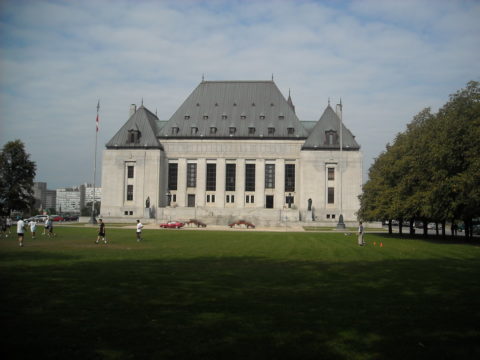
“Supreme Court of Canada, Ottawa” by daniel0685 is licensed under CC BY 2.0
The decision agreeing to this was signed by six of the nine justices of the court: Richard Wagner, Rosalie Abella, Michael Moldaver, Andromache Karakatsanis, Sheilah Martin and Nicholas Kasirer. Today I confront these eminences with the immortal question once asked by Johnny Rotten: ever get the feeling you’ve been cheated?
Last week the Liberal government whose hirelings rhapsodized about the urgent, indivisible, inherently national nature of carbon pricing announced a “temporary” total exemption for fuel oil used for home heating. This has the effect of letting some households in the Atlantic provinces out of a tax that applies to cleaner BTUs in the rest of the country, and the targeted regional nature of this move has been emphasized rather than concealed by Liberal ministers.
Oh, to be sure, it’s temporary. The three-year duration of the exemption just happens to push its expiry past the next federal election. What happens at that point, who knows? And to be sure, the exemption applies to fuel oil for home heating everywhere in Canada where the federal carbon tax applies. It just so happens that the electorally crucial Atlantic is the only place where a significant number of households still depend on the system. The Liberals can perhaps say with a straight face that there is no conflict here with the underpinnings of the arguments that succeeded so beautifully in the Supreme Court.
But if the GGPPA References were re-litigated now, after the attempt to impose the carbon tax and the panicky local retreat, one wonders whether the “national concern” blarney would seem quite so convincing. We are not, in turns out, all in this leaky planetary lifeboat together. The urgency of carbon pricing, it turns out, is not quite paramount and transcendent. Its indivisibility and inherent nationalness are not as promised. The Liberals didn’t want to save the planet quite so much, it seems, as they just wanted to make the rules for their own electoral benefit.
At The Line, Harrison Ruess, who recently switched his home heating solution from a mixed oil and propane to just propane, wonders why his choice to go with the lower-carbon option will end up penalizing him under the latest policy change by the feds:
Indeed, in looking deeper at the regional numbers, the concern about the rising cost of living and housing affordability isn’t particularly acute in Atlantic Canada versus other parts of the country. The chart below, provided to me by David Coletto at Abacus Data, and published here at The Line first, reveals just how difficult a position the PM has now staked out for his government. While Atlantic Canadians are somewhat more concerned about housing affordability than average, they are very slightly less concerned than the average Canadian about the overall rising cost of living. In Saskatchewan and Manitoba, for example, the opposite is true: they’re less concerned than average about housing affordability, but more concerned than average about the rising cost of living.
The takeaway to me in looking at this is that all Canadians are worried about costs and affordability.
The other question that jumped to mind is: why only heating oil? Heating oil is useful in places without good access to natural gas pipelines, and that does include much of Atlantic Canada, but also to rural areas everywhere, where other fuels, such as propane or wood pellets, are also used. According to the propane association, there are about 200,000 Canadian homes using propane — of which about 30,000 are in Atlantic Canada.
I can speak to this with some personal experience. When my wife and I purchased our home in semi-rural Ottawa, it had a Frankenstein heating system that used heating oil for part of our home and propane for another. Just this summer we completed a (somewhat expensive) rationalization of our system to combine the two into one larger, though more efficient, propane system.
Having one system will hopefully save us money on maintenance and hydro costs — powering and maintaining one system should cost less than two. It will also save us a couple hundred bucks a year on our home insurance (did you know there’s an extra premium if you have a heating oil tank? Welcome to rural life, dear readers.) Ditching the oil and expanding the propane is also good environmentally, since the carbon impact of propane is considerably less.
But we didn’t get a break from the federal government. We’d only have gotten it if we’d gone the other way, and used the more polluting fuel. Why punish my family for heating our home using the cleaner fuel?
And why not provide an exemption for natural gas? It’s cleaner still. And why not people in cities? They don’t want to freeze either, and we’re all broke. The carbon tax isn’t helping, no matter which fuel you’re using or which part of the country you call home. The ultimate challenge the government will face is that they cannot talking-point their way out of a reality.
November 4, 2023
November 2, 2023
The carbon tax has been murdered, by Justin Trudeau, in the House, with a blatant self-interest
Rex Murphy believes the much-hated carbon tax — the Laurentian Elite’s revenge on working Canadians — has been dealt its mortal blow by the least likely suspect:
Justin Trudeau came into office on the spume of Canadian-level celebrity, built on a persona of ostentatious, idle gestures and token cheer (selfies, socks, costumes), the endless vocalization of woke crackerjack-box slogans and a smile cemented in place that had all the warmth of well-gelled cement. Just style. Style, understood as the adoption of surface mannerisms in place of deeply settled convictions, convictions built on a real attempt to understand Canada, to relate to all its regions, and an appreciation (which does not mean agreement) of the ideas, lifestyles and situations of mainstream Canadians: style adopted as a campaign dynamic.
It’s worth reminding that from the moment of its first swearing-in, the Liberal government has been an administration of show and tactics: tactics have been its policy, tactics have been its governing lifeblood. Policies — in so far as it can be said to have had policies — have been merely (temporary) scaffolding or window displays meant to shore up the tactics. They have not been, as with an honourable government, needful measures for Canadian well-being, shored up not by tactics but by their obvious benefit and their consonance with what Canadians made clear were their concerns.
Canada’s predominant commitment these past eight painful years, the “one ring to rule them all”, the only government commitment held with deepest conviction we have been told, has been combatting global warming. It is different. It is real policy. It is the core principle. It is immutable because its cause is existential. It has been Canada’s passport to an admiring progressive world. Above all it has absolutely glowed with virtue-signalling and superior progressive sensibility. It has been as good as a wristband was at a rock concert years back.
For all of his eight years Trudeau has incessantly promoted and promulgated his single cause. At home he has out-Suzukied David Suzuki, out-Mayed Elizabeth May, and there have been moments when he “out-dared” Greta. Abroad, he has been climate alarmism’s smiling Galahad.
Global warming has been his religion, and what he calls the carbon tax both eucharist and passport to net-zero paradise. To an increasingly skeptical Canadian public, anxious and distrustful of a government regularly racked by scandal and heroic mismanagement, he said (I paraphrase): “I know I’m taxing a necessity — heat for homes in northerly Canada — and I know it must hit the poor first and worst. But it’s to save the world! Saving the world keeps me up at night. And I want Canada to lead the way in saving it. And for that, there must be a tax on energy, on gas and oil, on heating. It must be done. It’s a sacrifice poets will write in praise of in the lower-temperature world we will be key to making happen.”
The tax on carbon dioxide — the great comedians of the Liberal party called it a “tax on pollution” — had to be imposed, even as inflation ravaged the country and further immiserated the already sufficiently immiserate, because Trudeau had a whole world to save. It was the signature element of the signature policy of Trudeau’s showcase government. It was the indispensable girder in building a post-oil-and-gas future for a post-nationalist Canada, the indestructible bridge to a golden net-zero tomorrow for our country. And, incidentally, a great shiny glittering Last Spike to doom Conservative Alberta’s economy and government, and no little whack for Saskatchewan.
This was principle as policy, and policy as principle. For seven plus years.
And now. A few fingers snapped somewhere and suddenly, Mr. Trudeau … cancels the carbon tax. Cancel for one and you must cancel for all.
November 1, 2023
Canada’s (deliberate lack of) strategy
In The Line, Vincent Rigby discusses Canada’s notable lack of any kind of strategy to cope with an international situation that seems to be changing (or deteriorating, take your pick) at a rapid pace:
On the foreign policy front, the Canadian government unveiled its long-awaited Indo-Pacific Strategy almost a year ago. It was a welcome development for Canada’s role in a region at the epicentre of global events. But it was remarkably light on security and is now under severe stress given the serious diplomatic falling-out with India. But more importantly, where is Canada’s broader foreign policy? What will we do in other parts of a turbulent world to protect our security and values? How will we balance regional priorities? Canada has not produced a comprehensive foreign policy statement in 18 years.
On the defence front, Canada unveiled a new policy, Strong, Secure and Engaged, in 2017. After the Russian invasion of Ukraine, the government committed in April 2022 to produce an update to that policy in the following months. A year and a half later, Canadians are still waiting. In the meantime, officials have spoken publicly of possible cuts to the defence budget of $900 million a year over four years as part of broader government spending reductions. A severely stretched military may soon be stretched even further.
On the home front, Canada continues to lurch from crisis to crisis — the Freedom Convoy with its populist underpinnings, Chinese interference in federal elections, possible Indian complicity in the murder of a Canadian citizen, and now tension at home over the fighting in the Middle East. More than ever, Canada’s large diaspora communities feature prominently in security and foreign policy discussions. While Canadians await the findings of yet another public inquiry into the China affair, a broader strategy to confront national security threats is nowhere to be seen. Canada has not produced a national security policy in 19 years.
To be fair, the government has not sat idle during recent global developments. For example, it has ramped up its support to Ukraine (notwithstanding a slow start and the recent embarrassment in the House of Commons), taken measures to improve economic security, and established a National Security Council. But these efforts are all too often modest, piecemeal and reactive.
A Canadian senator famously quipped nearly a century ago that Canada was “a fireproof house far from inflammable materials”. It was barely true in the 1920s, and it is even less so today. But Canadians, despite all recent evidence to the contrary, apparently still believe this to be the case. They assume that the threats are not aimed at Canada, and that the U.S. would come to their rescue regardless. On both counts, such assumptions are dangerous, especially if Donald Trump were to return as president. The government, echoing the indifference of most Canadians, chooses to focus on domestic priorities, from increasing affordable housing to improving health care to fighting inflation. All are undeniably important. But as every prime minister declares, the government ultimately has no greater responsibility than the security of its citizens.
Canada needs an integrated, coherent strategy (or strategies), supported by appropriate resources and capabilities, to respond effectively both at home and overseas to this new world order. It will require trade-offs, but the case needs to be made to Canadians that the generation-long, post-Cold War peace dividend is no longer on offer. Our allies get that — so too must Canada. In the absence of such strategy, the security of Canadians will deteriorate further, and relationships with key NATO and Five-Eyes allies, already in peril, will suffer even more. If not careful, Canada may find itself more alone in the world than ever.
QotD: The original United States government
I think governments, being human institutions, evolve as people do – and evolution, as we know, is copious, local, and recent. Put as simply as possible: If the government the Founders designed worked as intended (note: IF), it only really worked for them – that is, for Anglo-Celt misfits in a frontier society with, at best, 18th century technology and information velocity.
And in any case, that government – IF it worked as designed – lasted the span of one long-ish (then, average now) human lifetime: 1788-1861.
Most “political” problems, on this theory, can be boiled down to the attempt to retrofit old, unsuitable institutions to new creatures. To take the most basic example, that stuff about a “well-regulated militia” rests on the assumption – integral to a rough frontier society of Anglo-Celt misfits – that everyone is armed, and competent with their arms. This is simply not the case in a more settled society, with the higher information velocity that entails / requires, so we get all the endless wrangling over “gun control” (assuming anyone in that debate was ever arguing in good faith, which is also a big IF, etc.).
One obvious counter to this line of thought is to put it mostly down to technology – just as the Founders couldn’t imagine drones and ballistic missiles and “assault rifles” and the rest while they were writing the 2nd Amendment, so the problems with government can almost all be boiled down to old institutions trying to cope, not with new people, but with new technology.
Severian, “Bio-Marxism Grab Bag”, Founding Questions, 2021-01-21.
October 29, 2023
“Citizens of the World, Unite! You have nothing to lose but your illusions!”
Sarah Hoyt addresses the people who think of themselves not as Americans, Canadians, Brits, or Germans, but as “Citizens of the world”:
One of the funniest conceit of our age has to be the idea that the sophisticated and “bien pensant” are “citizens of the world”.
I was profoundly amused that Alvin Toffler fell for his in his last book I read sometime in the 90s. Keep in mind that, despite everything else, I believe his Future Shock is brilliant and explains a lot of life in the US in the last fifty years. (Note in the US. I’m not sure about the rest of the world. And I could explain why, but it would sidetrack us a lot more than this.) However the book about how the most powerful were the ones who had the most information (arguable) also pushed the “citizens of the world, not a country” thing as being the one for most powerful people.
I was amused because, though I agree this is the CONCEIT of most self-styled international elites, it is also in practicality, a load of stinking Hooey. (Or as we call it around here, #2 son’s pre-school teacher. Yes, that really was her last name.)
Part of the reason the “elites” believe themselves multinational or “citizens of the world” is oikophobia. They believe themselves to have risen above their co-citizens in their lands of origin, who are … well, in their minds, stupid and uneducated, which is a way to say “less rich” than the “elites”.
Therefore, in the same way that the nobility of old had more in common with other nobility from other lands than with their own country, they think they are a caste set aside and by reason of existing or having money inherently superior to all those who are loyal in and interested in their homelands.
Part of it is the belief that “nationalism” is bad and it led to WWI and WWII. Having been taught that (at this point it, drank it with mother’s milk) the richest and “best” (Most expensively) educated want to get as far away from that as possible, and be at a level when they’re free from that irrational passion, since it’s their conceit that they can rule “impartially” and from above for the good of all.
The problem with it is that not only is none of it true, but they are in fact both more provincial and less well educated than their countrymen. And also that what they aspire to is not only impossible, but really easy to manipulate.
So, the long war of the 20th century was not because of nationalism. In fact, the only explanation I have found for its being assumed to be so is that the international socialists who dominated intellectual discourse for the rest of the century despised the fact that, against their theory, workers of the world didn’t unite, but rather rallied to defend their homeland.
However, if you do a deep dive into the reasons for the first war, ignoring the opinions of those writing about it — which I did, because I was profoundly unsatisfied with the reasons given and none of it made sense — the war’s causation was attempts at internationalism. yes, the internationalism wasn’t of the “supra-national, pseudo worldwide” type (Actually the mask worn by Russian national imperialism) but of the “extended noble family trying to grab the entire world” type. But it was still internationalism, with all the problems of internationalism. (More on that later.)
And the current elites are not “better educated” and don’t rise above much of anything. In fact the world-renowned establishments most of them attend take so many “legacy” and “endowed an entire specialty” students, not to mention “admitted because diversity of skin color or origin” that their meritocratic requirements (I.E. knows or gives a damn about the subject), might be lower than your average state university. Also, once admitted, these people are guaranteed to graduate. Or at least will, barring some particularly egregious violation of code of “everybody knows”.
[…]
But more importantly, these “Citizens of the world” have no clue how their country is constituted, nor how many miles of miles and miles with the occasional house there are in this country. Or that each state has a different culture. Or –
In fact, these people who by and large don’t mix with local populations have a vague idea that the country has a lot more cities/apartments than it does, and that people act more compliant than they do. Because like Europeans, what they know about America is what they see in movies, not realizing movies are made by people like them and are feeding their assumptions back to them.
They also have a vague idea most of the country is easily led, because of course the only reason to disagree with them is that we’re being lied to by extremely persuasive evil people. (That it never occurs to them this might be happening to them, is a measure of [their] lack of self awareness.) Hence their reason to try to get Trump. Because without his evil persuasion, we’d be fully on board with their crazy-cakes insanity.
As for the European elites, I don’t know. I used to hobnob with them, in the sense that I tended to hobnob with the over-educated which were, definitionally, better off than I, but it’s been a minute. However, judging from that and what I see now, my belief is they’re not really “citizens of the world” so much as citizens of their homeland which they secretly believe should rule all nations due to the “nationality” — race/breed being obviously superior.
What I do know is that there is no such a thing as a citizen of the world, no matter the level of self delusion that induces people to believe they are such.
We are all members of our culture. While we can believe everything about our culture is bad and evil, we still project it on everything else we see. Therefore, you know, well to do Americans keep believing criminals and terrorists don’t really exist, and must be decent people driven to extremes by need or oppression. (The results of these beliefs would be hilarious, if they didn’t more or less break everything.) Heck, they keep believing the LAZY or lacking ambition don’t exist, and if people aren’t working hard to succeed it must be because of a terrible condition. (Look up “Bee sting” theory of poverty sometime.)
When the various international elites meet abroad, they each read in the other what they themselves would do, but don’t actually understand each other beyond vague fashion sense, and spending money like water.Ultimately their entire attempt to be “international” seems to consist of an idea that if they just become the people of the song “Imagine” and don’t believe in or care about anything, they can lead people better.
They are wrong because it’s not only impossible to divest yourself of all passion and interest (well, without offing yourself or doing a lot of drugs) but also because it’s impossible to totally divest yourself of your basic culture. (You can acculturate, but that involves a lot of work, and ACQUIRING another culture, which defeats their purpose. The “citizen of the world” culture doesn’t exist, beyond some shibboleths like “humans are killing the Earth” and “The proles are really stupid, eh?”). MORE IMPORTANTLY, even if they managed it, that wouldn’t make them impartial or able to lead anyone to utopia. What it would make them is very, very people-stupid and unable to realize why certain people do certain things, and others don’t. Or why certain countries are the way they are.
In fact, to the extent they’ve managed to shed their culture and replace it with Marxism, all they’ve done is become an unreasoning cult, unable to realize the population isn’t in fact exploding — because people lie in census, and so do nations — but also that there is not only no necessity but no benefit in “eating bugs”.
October 28, 2023
Israel’s Zugzwang
Not being a huge chess nerd, I’d never encountered the term “zugzwang” before, but as Niall Ferguson and Jay Mens explain here, it’s an appropriate way to characterize the situation Israel finds itself in at the moment:
Zugzwang is one of the ultimate challenges for a chess player. In zugzwang, a player is in a situation where any move can only weaken one’s position and carries the risk of checkmate — but not moving isn’t an option. Beyond the intrinsic horror of Hamas’s October 7 massacre, it is now obvious that the attack was designed to provoke Israel into reacting. The extent of the zugzwang is increasingly clear, and Israel has few good options. Nor does the United States.
No one should have been surprised by the attacks on Israel by Hamas and Palestinian Islamic Jihad (PIJ). Over the last year, there have been more than a dozen public meetings between Iranian officials and the leaders of Hamas, Hezbollah, and PIJ. Enormous quantities of men and matériel have moved from Iraq into Syria, with other matériel arriving by land and air to Lebanon. Hezbollah and the Iranian Revolutionary Guards Corps (IRGC), the common thread of the region’s so-called “Axis of Resistance”, have worked to build and consolidate enormous bunkers and fortifications across Syria along with Hezbollah. Some anticipated another Lebanon War, others expected another Gaza War, and others expected a Third Intifada. The only thing few — if any — expected was a design to drag Israel into all these battles and several more at once.
The Imperative to Act
In the aftermath of October 7, Israel must strike back. Propelled by nationwide rage, a new government of national unity in Jerusalem has vowed to destroy Hamas. If that is the true goal, a ground operation in Gaza is necessary. Such an operation began in Israel on Friday night. The very nature of urban warfare means that it will have an enormous human cost and an uncertain duration. And this is not just urban warfare: there are two Gazas — the aboveground and the underground network of tunnels where Hamas’s men and weapons are stored.
And time is not on Israel’s side. International support is already waning, and nowhere more than in the Arab world. Egypt and Jordan, Israel’s most important security partners in the region, have already accused Israel of planning the ethnic cleansing of Gaza. Worse still, the operation will tie down a significant portion of Israel’s manpower and assets. Israel will, as a result, be especially vulnerable to the risk of overextension.
Gaza isn’t the only problem. There is also the West Bank, where unrest is already growing and where the Palestinian Authority is at risk of collapse. Then, to the north, Hezbollah has its vast arsenal of rockets, drones, men, and missiles in Lebanon, while on the Syrian border tens of thousands of Iraqi militants have amassed with the goal of “liberating” the Golan. Thousands more Iranian-made drones and ballistic missiles are spread out across dozens of bases in Iraq, Syria, and Yemen. For that reason, Israel now relies on American support. Jerusalem is likely waiting for the last of American reinforcements — including another carrier strike group — to arrive in the region prior to launching its attack. But is there an alternative?
Of course, it’s widely believed that Hamas deliberately positions its facilities to make Israeli attacks less likely due to the elevated risk of unacceptable levels of collateral damage … like this:
QotD: Deposing King Charles I
It’s 1642, and once again the English are contemplating deposing a king for incompetence. Alas, the Reformation forces the rebels to confront the issue the deposers of Edward II and Richard II could duck: Divine sanction. The Lords Appellant could very strongly imply that Richard II had lost “the mandate of heaven” (to import an exoteric term for clarity), but they didn’t have to say it – indeed, culturally they couldn’t say it. The Parliamentarians had the opposite problem – not only could they say it, they had to, since the linchpin of Charles I’s incompetence was, in their eyes, his cack-handed efforts to “reform” religious practice in his kingdoms.
But on the other hand, if they win the ensuing civil war, that must mean that God’s anointed is … Oliver Cromwell, which is a notion none of them, least of all Oliver Cromwell, was prepared to accept. Moreover, that would make the civil war an explicitly religious war, and as the endemic violence of the last century had so clearly shown, there’s simply no way to win a religious war (recall that the ructions leading up to the English Civil War overlapped with the last, nastiest phase of the Thirty Years’ War, and that everyone had a gripe against Charles for getting involved, or not, in the fight for the One True Faith on the Continent).
The solution the English rebels came up with, you’ll recall, was to execute Charles I for treason. Against the country he was king of.
Severian, “Inertia and Incompetence”, Founding Questions, 2020-12-25.
October 25, 2023
Housing for Hamas leadership … in London
In the non-paywalled part of a post from Ed West, we have a look at the terrible conditions leaders for Hamas and other terrorist organizations have to put up with in the embattled suburbs of … London:
Barnet, to those unfamiliar with this corner of the world, is the most Jewish borough in Britain, an area of north-west London often described as “leafy” and including both pleasant inner suburbs like Finchley as well as areas of genuine countryside. The migration of eastern European Jews in the capital followed an anticlockwise direction from impoverished Whitechapel in east London up through Hackney and Haringey in the north, with Barnet the next stop.
It is also, strangely, home to a leading fundraiser for Hamas, the terrorist group responsible for the murder of 1,400 people in southern Israel earlier this month and quite explicitly committed to the eradication of Jews in the Holy Land.
What with London house prices being what they are, you wonder how he managed it, but of course Muhammad Qassem Sawalha, who “ran the group’s terrorist operations in the West Bank”, according to the Sunday Times, managed to buy his property with help from the council.
Despite being a known and wanted terrorist, Sawalha was allowed to settle in Britain in the 1990s and obtain British citizenship. He continued to work for Hamas, holding talks about committing terrorist acts and laundering money for the group, according to the US Department of Justice. In 2009 he signed the Istanbul Declaration which praised God for having “routed the Zionist Jews”, and called for a “Third Jihadist Front” to be “opened in Palestine alongside Iraq and Afghanistan”, according to the paper.
All the while he was benefitting from Britain’s social housing system. In 2003, Barnet Council made him a council tenant and he was housed in a two-storey property with a garden and garage in the borough, where he still lives.
Two years ago, Sawalha and his wife used the Right to Buy scheme to acquire their home for £320,700, with Barnet Council giving them a £112,300 discount on its market value.
This is despite the fact that in 2006 Panorama reported that Sawalha was “said to have masterminded much of Hamas’ political and military strategy” and that, “although he was known to MI5, the ‘authorities let him operate freely here'”. Not just let him operate freely, but sort him out with a house – and if you think this sounds insane, it is not at all uncommon.
Sawalha’s old comrade, the famous hook-handed hate preacher Abu Hamza, was also given a huge house courtesy of the British taxpayer. The Egyptian was allowed to live rent-free in a five-bedroom house in what the Mail described as “upmarket Shepherd’s Bush”, a phrase I would have found astonishing to read as a teenager in west London.
Shepherd’s Bush is next door to super-rich Holland Park, and private property is extremely expensive there – but it also has high levels of social housing, as with much of central London, so “upmarket” might be stretching it.
October 23, 2023
QotD: The real meaning of “Watergate”
I was reflecting this week on my brief stint, many years ago, as a newspaperman. It was a job I loved. I signed on not too many years after the Watergate scandal, and journalists were still flush with heroic ideas about themselves. Woodward and Bernstein — and all reporters by extension — had toppled a corrupt presidency and saved the republic and the Constitution from the kind of behind-the-scenes government tyranny dramatized in such thriller films as The Parallax View and Three Days of the Condor.
[…]
Recently, reading Mark Levin’s Unfreedom of the Press, I was reminded that, before reporters went on their great crusade against Richard Nixon, they had overlooked a whole lot of corruption in the Democrat presidents who preceded him.
Levin tells how John F. Kennedy, with the knowledge of his brother and Attorney General Robert, nudged the IRS into auditing conservative groups. With Kennedy’s approval, the FBI was also employed to investigate those the administration disliked, including Martin Luther King Jr. Lyndon Baines Johnson would later increase the politically motivated auditing and spying. None of this was uncovered until later on.
Ben Bradlee — the editor of the Washington Post, where Woodward and Bernstein broke the Watergate story — was well aware of his pal Kennedy’s misuse of the tax and investigative agencies. Not only did he not report it, he allowed himself and his paper to be manipulated by information JFK had wrongly obtained.
This totally changes the Watergate narrative. Nixon’s dirty tricks and enemy lists may have been creepy and wrong, but the press exposure of these misdemeanors came after years of ignoring similar and worse malfeasance by Democrat administrations.
That changes what Watergate means. That transforms it from a heroic crusade into a political hit job, Democrat hackery masquerading as nobility. The press turned a blind eye to the corruption of JFK and LBJ, then raced to overturn the election of a man they despised — despised in part because he battled the Communism many of them had espoused.
Andrew Klavan, “‘Watergate’ Doesn’t Mean What the Press Thinks It Means: The press turned a blind eye to the corruption of JFK and LBJ, then raced to overturn the election of a man they despised”, The Daily Wire, 2019-08-31.
October 22, 2023
The “Green New Deal” is great … for the well-connected wealthy elites
Elizabeth Nickson — who lives in British Columbia, hands-down the “greenest” province in Canada — somehow isn’t a fan of the way our kakistocratic “elites” are pushing us all toward their utopian “green” world:
A few years ago when I was building my house, I attended a “green” building conference in San Francisco. Gavin Newsom and Bobby Kennedy, Jr. were giving keynote addresses, and across the conference floor were strewn hundreds of booths of builders, engineers, architects, visionaries, and commercial interests selling every manner of material, equipment, skill sets, and propaganda. Buildings, I was told, emit 59 percent of carbon emissions, and green builders would shut that down. And it would be profitable.
At the time I was neutral but dubious. I had completed a “green” subdivision and had promised puzzlingly powerful members of “the community” that I would build a “green” house. It wasn’t a requirement but it was an acceptable challenge and I knew I would be fascinated by the exercise.
I followed the LEED (Leadership in Energy and Environmental Design) platinum template, contracted the job myself. I wanted to build a healthy house, which meant as little chemical off-gassing as possible. Despite my savings, which were considerable, it still cost 40 percent more than a traditional stick-frame. The geothermal system cost $35,000 more than traditional heating and no, I have not “made back that money.” Today that cost would be north of $150,000.
We’re all in this together, right?
The only reason I am not bankrupt is that where I live is so restricted as to land use, housing prices have skyrocketed. Only the rich can afford to live here. My property with its “improvements,” which is to say my money and labor, is now worth 30 times my initial investment. This is known as old-fashioned economics, wherein you restrict supply and prices, via demand, go up.
This too is a perfect micro-illustration of the “Green Economy” or the the “Green New Deal.” It is “green” only for the wealthy or privileged by virtue of education. It is very, very “green” for those who profit from it. The people who took my extra money, other than the giant suction hose of government, were mostly those demanded by “green” theology: engineers (5), lawyers (3), surveyors (2), wildlife consultants (2), and permitting bureaucrats. Those requirements have doubled in the intervening years.
Today, life is very green for the hosts of eager young professionals at that conference who have in the intervening years insinuated themselves into every government structure, inserting siphons whereby they literally suck money out of the system in torrents of green. When I think of that conference, full of bright-eyed (expensively educated) enthusiasts, who were hell-bent on selling their ideas to the wider culture, I think: who the hell brought you up? Because this is a moral question, a profoundly ethical question. And everything you do is profoundly immoral.
The U.S. Supreme Court recently rejected an appeal that would overturn the econometrics of carbon pricing, i.e. that the Biden administration is placing too high an estimate on the future social cost of carbon emissions. Who can know the social cost of carbon emissions? But it means shuttering 450,000 shale jobs because think of the future.
A lawyer in “deep blue” Pennsylvania discovers that elected bodies don’t have to listen to the voters
Chris Bray on the details of a case from Pennsylvania where an active and involved parent tried to get answers from the elected school board on how they justified imposing masking requirements without a shred of legal power to do so:
In December of 2021, the Pennsylvania Supreme Court ruled that officials in that state had implemented mask mandates that they had no legal authority to impose. The decision in Corman v. Beam is not written in stirring language, and makes no bold declarations about truth, freedom, and the American way; it’s a workmanlike examination of statutory language, quite dull to read. Test me on that characterization, if you want. But the court concluded, importantly, that the mandate had been invalid ab initio — not from the moment the court struck it down, but rather from the moment it was issued. Mask mandates had never been enforceable in Pennsylvania.
In an affluent, deep blue community in the Philadelphia suburbs, a lawyer and parent named Chad Williams took the ruling as vindication. With four children in the local schools, he’d been telling school officials — clearly and often — that they had no legal authority to require masks on campus. To say that they hadn’t listened would be an understatement.
In August of 2020, during a Zoom meeting to decide on in-person school for the soon-to-begin school year, the nine-member Unionville-Chadds Ford school board muted Williams when he asked about the legal basis for the choice.
Repeating the performance, school board members cut the microphones and walked out of one of their own subsequent meetings, in August of 2021, to avoid listening to Williams when he didn’t stop speaking at the three-minute mark during their public comment session. Other parents concerned about forced masking for children received a similarly warm reception. The school board voted unanimously that same night to again impose a mask mandate on their campuses for the new school year.
For Williams, the repeated experience was a shock. He was an experienced lawyer, a parent, an established member of the community, and a volunteer coach at the high school — and he couldn’t get anyone to listen to a reasonable question. He asked his school board to explain the legal basis for a new policy, and “the school board president just cut me off.” Officials were acting in lockstep, without apparent authority, and refusing to explain their choices. “They just wouldn’t answer,” Williams says. Many of us have had this experience.
The school district finally dropped its mask mandate in March of 2022, after the decision from the state Supreme Court. And that was the end — except for one thing. A formal policy of the Unionville-Chadds Ford School District, Policy 906, establishes “a fair and impartial method” for the examination of parent complaints. You can find that policy here, in the section labeled “Community”. The policy is detailed and unambiguous, and starts requiring written reports after the failure of early and informal stages of resolution:
Third Level – If a satisfactory solution is not achieved by discussion with the building principal or immediate supervisor, a conference shall be scheduled with the Superintendent or designee. The principal or supervisor shall provide to the Superintendent or designee a report that includes the specific nature of the complaint, brief statement of relevant facts, how the complainant has been affected adversely, the action requested, and the reasons why such action should be taken or not taken.
Fourth Level – Should the matter not be resolved by the Superintendent or designee or is beyond his/her authority and requires Board action, the Superintendent or designee shall provide the Board with a complete report.
Final Level – After reviewing all information relative to the complaint, the Board shall provide the complainant with its written decision and may grant a hearing before the Board or a committee of the Board.
Williams used Policy 906 to ask the school board to think about what it had done, conducting an independent review of its policy decisions during the pandemic. Why had school officials implemented policies they had no legal authority to impose? Why had they refused to discuss or address parent questions? Why had they stonewalled requests for documents and information — not only from parents, but from a state senator who took an interest in the matter? Williams asked for an apology and “changes in oversight” to prevent a recurrence of unlawful and unexplained policy decisions, using formal school district policy that requires the district to act on complaints.
They haven’t bothered. The Unionville-Chadds Ford School District continues to ignore Williams, not responding to his complaints or opening the inquiry their own policy requires them to pursue. He’s had one sort-of response: In an exchange over the handling of the complaint, the district’s lawyers, at a private law firm, threatened him with legal action — a threat they so far haven’t made good. But from school district officials, the only response to three years of questions is unbroken silence.
October 21, 2023
Paul Krugman lives in a fantasy world where “The war on inflation is over. We won, at very little cost”
Inflation continues to roar, despite calming words from government officials and legacy media pundits, as anyone who buys groceries could tell you. We long ago gave up going out for dinner, and now we’re very much living week-to-week and hoping the money lasts the whole month. Until my wife’s pension comes in late in the month, we’re utterly skint and trying to avoid spending any money at all. At Ace of Spades H.Q., Buck Throckmorton refutes the pro-government propaganda of, among others, Paul Krugman:

Monty used to use this image at Ace of Spades H.Q., and I certainly think it’s appropriate to include it here.
My household’s monthly grocery bill continues to steadily increase, despite the grocery list containing a pretty consistent basket of goods. We are spending more but not bringing home any more groceries. I am blessed that inflation has not forced us to cut back what we buy, but that hardly seems like an “expectation smashing” spending spree.
This article points out that several categories of retailers are not seeing any revenue growth at all, including clothing stores, electronics and appliance retailers, and sporting goods stores. In other words, these dry goods retailers are seeing declining unit sales as consumers are forced to redirect their decreasing purchasing power toward food, housing, and utilities.
Sales excluding auto and gas increased 0.6%, above estimates for a 0.1% increase compiled by Bloomberg.
That 0.6% monthly increase in spending annualizes to a 7.2% increase in spending over one year. As we’ve discussed often, the government’s published inflation figures are completely fraudulent, with the Bureau of Labor Statistics reporting that as of September the annual inflation rate is just 3.7%, down from 4.0% in May 2023.
John Williams’ website (shadowstats.com) tracks inflation using the same measurements used in the Carter era. The chart below is updated through May 2023, showing the official 4% inflation as reported by the US government (red line) versus inflation if calculated the same way it was calculated in 1980 (blue line.) Actual inflation is more than 12%, which is 3 times the official bogus government figure.
Therefore, the “expectation smashing” consumer spending that the media is reporting is not even keeping up with actual inflation, which means that consumers are bringing home less in the way of retail goods, despite the increased dollar amount they are spending.
This tweet below is not a parody. Nobel Prize winning
propagandisteconomist Paul Krugman actually stated that excluding food, energy and shelter, “The war on inflation is over. We won, at very little cost.”Thanks, Mr. Krugman, that’s very helpful. While inflation may be out of control on food, energy, and shelter, those are unnecessary discretionary expenditures. If people will just forego extravagances such as feeding their families and putting a roof over their children’s heads, they’ll do just fine in Biden’s economy.
October 20, 2023
QotD: The Gen-X-Files
Just to take one small example, The X-Files was hitting its stride in 1994, and I was smack dab in the target demo: Nerdy college dude. And yet, all the show’s basic assumptions rubbed me wrong. Mulder was obviously supposed to be cool, but as I saw it, the show went out of its way to make him look like a loser — no girlfriend, no family, not even a pet, spanks it to porn (an at least somewhat risqué thing to imply on network tv, even at that late date). More than that, though, was the show’s attitude towards the government. You’re asking me to believe that the government — Bill Clinton’s government — is competent enough to keep an alien conspiracy under wraps?
I wasn’t in any way political back then. If forced to pick a side, I’d have been reflexively liberal, like all college kids are. I didn’t know the first thing about what was going on out in the world, let alone in the corridors of power in Washington, but even I found that pretty farfetched.
More importantly, the zeitgeist I saw was rapidly changing. X Files creator Chris Carter was born in 1956 and grew up in sunny SoCal (his wiki entry makes sure to give us his favorite surfing stance), so he more than most probably wrestled with the dilemma of how to bring Flower Power into Ronald Reagan’s 1980s. Hence the weird disconnect of the early 1990s, when Bill Clinton got his groovy, greasy, chicken-fried hippie self into the White House: The same people who, in their own college days, had nothing but hatred for the CIA and their domestic Mini-Me, the FBI, were all of a sudden kinda sorta coming around on the idea that The Feds are our friends — since, you know, the Feds are now us. It’s probably not a coincidence that Agent Mulder, FBI, was the star of The X-Files.
Explains a lot about “Gen X”, don’t it? When every single authority figure in your life, from the President on down, tells you to Fight the Power, the only way out of the clown show is to be, you know, like, whateverrr about everything — learned helplessness, 1994 version.
But smoked-out, flannel-clad, and apathetic is no way to go through life, and so we turned into a generation of suck-ups and toadies. Oh, the lunatic Marxists in the Teachers’ Unions want to encourage kids to “transition” in elementary school. Dude … you know, like, whateverrr. The college kids of 1994 are the middle managers, the Deep Staters, the lever-pullers of 2021. It’s working out about as well as you might’ve expected. You don’t need Agent Mulder to solve this mystery.
Severian, “1994”, Rotten Chestnuts, 2021-04-15.

